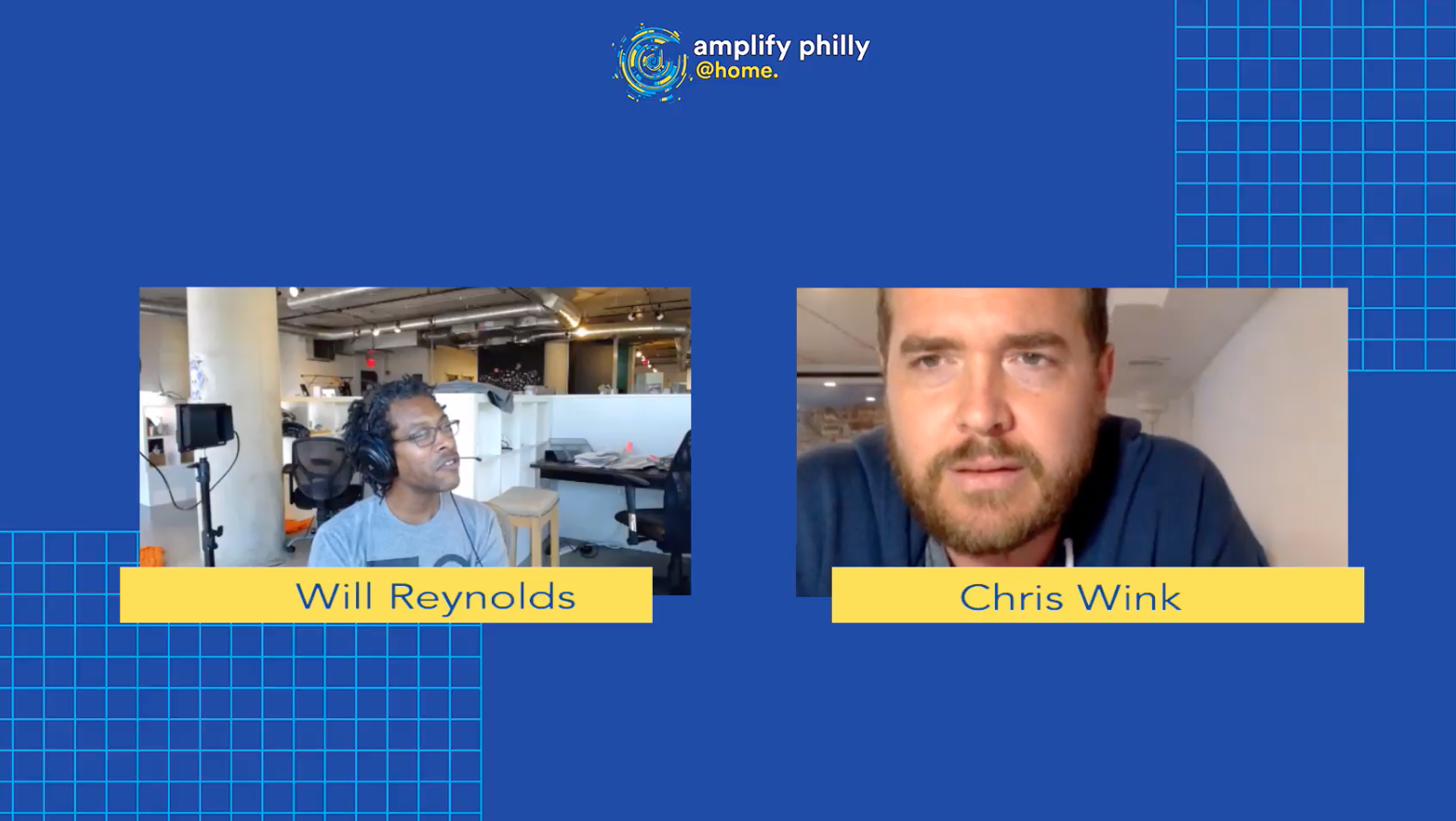In the workplace — especially this year — there must be room to recognize fear.
There are realities that business leaders and employees must face, like potential loss of revenue or changing industries, because of the ongoing coronavirus pandemic. People are wondering: Will I keep my job? Will my company survive this time? How do I make decisions like returning to our office?
Technical.ly CEO Chris Wink sat down with Seer Interactive founder Wil Reynolds last week during the Amplify Philly @ Home series to talk about fear in the workplace. The pair touched on how to, one, address that it exists within all levels of the company, and how as company leaders, you can use fear to your advantage.
One of the most important things to note, Reynolds said, is that while you can acknowledge fear in your employees, managers shouldn’t be burdened with trying to handle that fear or discomfort. What management can do is make sure the right resources are available through insurance, or bring in the right people for that job.
“We don’t need our team leads, who are trained professionals in their jobs at Seer, to talk to our people about mental health,” Reynolds said. “We should stick to professionals when it comes to mental health. Saying it’s important is key, but it should be handled by professionals.”
The main way Reynolds said Seer is handling uncertainty about its financial health is by being fully transparent with its 180 employees about where it stands, and steps it will take if circumstances change. He outlined that the team has talked about benchmarks that would first mean the company would stop spending on small things, like snacks, and eventually on matching 401k(s), before they would entertain the possibility of layoffs.
“If you report on which phase you’re in every month, with all that info, I hope it enables people to not have to make a story between two points,” he said. “The more info I can give them, the more those dots aren’t connected on their own.”

A founder has to learn how to follow their instincts, Reynolds said, and fear can be a motivator to do so. In normal times, but especially now, he leans on his leadership team to help him make and implement tough decisions. Delegating can be hard at first, but the best founders realize that it’s not their job to run an entire company — you should go out and hire people who can do the best job for you.
He called out VP of People Operations Emily Allen and others on his leadership team who help him implement ideas, like the April call to offer funds to family members of employees who had their wages disrupted or who had been laid off because of the pandemic.
It’s a lesson he learned early on at Seer, he said, telling a story of how he’d spent a few thousand dollars on stocking the office fridge with drinks for employees until someone pointed out to him that it wasn’t economically feasible to do so.
“It was one of those moments where I realized, ‘Fuck, I could ruin this company'” by not letting others handle the smaller details, he said.
And when it comes to addressing fear with those in your company, you have to lead by example, Reynolds said. That mentality starts with a routine for new employees. Reynolds sits down with them and talks about the things they’re good at and the things they’re not. Acting like you, as the leader of a company, have everything figured out won’t allow room for vulnerability.
“Before you can talk to others about fears, you need to earn credibility talking about yours,” he said. “Anything I can do to chip away at that, I want them to be able to admit their mistakes. To ask for help in those moments.”
Check out their full conversation at the 1:57:05 mark:







